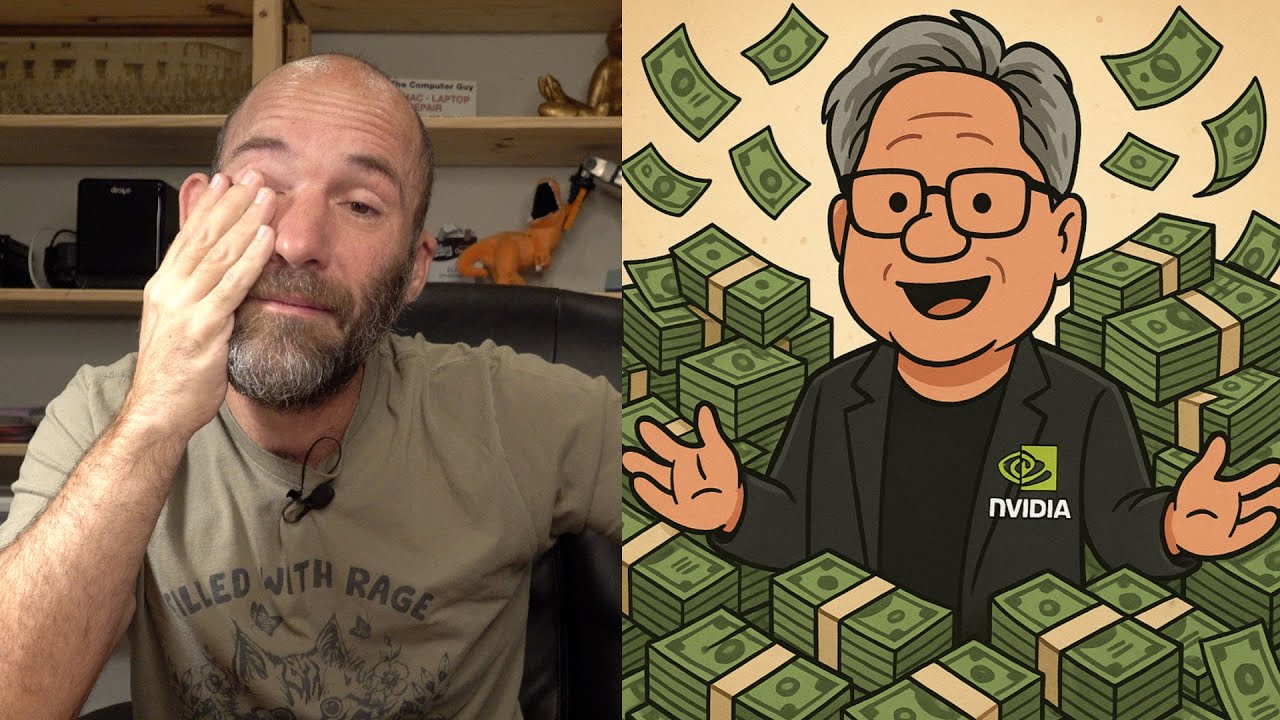Eli from the Daily Blob critiques the inflated valuations of AI companies like Nvidia, warning that the current hype resembles past tech bubbles and is disconnected from the actual capabilities and adoption of AI technology. He emphasizes that while AI is a valuable tool still in its early stages, investors should remain cautious as the market may face corrections, and the true impact of AI will unfold gradually over time.
In this video, Eli, the host of the Daily Blob, discusses the current state of artificial intelligence (AI) and the wildly inflated valuations of AI-related companies, particularly focusing on Nvidia. He begins by promoting upcoming AI-related classes at Silicon Dojo, emphasizing the importance of hands-on technology education. Eli expresses concern about the hype surrounding AI, comparing it to past tech bubbles and cautioning that while AI technologies like large language models (LLMs) are useful, the market valuations have become irrational and disconnected from reality.
Eli highlights the staggering valuation of Nvidia, which recently became the first company to reach a $5 trillion market capitalization, largely driven by AI enthusiasm. Some analysts now predict Nvidia’s value could soar to $8.5 trillion, fueled by expectations of increased demand for its new Blackwell GPUs and expanding AI applications beyond hyperscale data centers. Despite this optimism, Eli finds these valuations absurd and warns that such hype-driven growth is reminiscent of past tech bubbles, like Uber’s overestimated IPO valuation years ago.
The video also touches on the growing disillusionment among AI professionals who recognize that AI is not the magical solution many investors and the public believe it to be. Instead, AI is just another component in the technology stack, useful but limited. Eli shares his personal frustrations with AI implementations, describing them as slow, glitchy, and often delivering poor results. He contrasts this with the soaring stock prices and media hype, pointing out a significant disconnect between the reality of AI technology and the market’s expectations.
Eli further discusses the phenomenon of large tech companies purchasing expensive GPUs but not fully utilizing them, citing Microsoft’s CEO admitting to GPUs sitting idle in inventory. He explains that for trillion-dollar companies, buying and stockpiling expensive hardware to block competitors is feasible, even if it seems wasteful. This practice, combined with a lack of transparency about how much AI infrastructure is actually being used, raises questions about the true state of the AI revolution and whether the massive investments are justified.
In conclusion, Eli urges viewers to critically evaluate the AI hype and the astronomical valuations of companies like Nvidia. He warns that if the market faces a correction or “down round,” it could have serious repercussions for the broader economy. Despite the hype, he stresses that AI is still in its infancy, and the technology and its applications will evolve significantly over the coming years. Eli invites viewers to share their thoughts and encourages participation in his educational offerings, emphasizing that while AI is a powerful tool, it is not the panacea many believe it to be.
